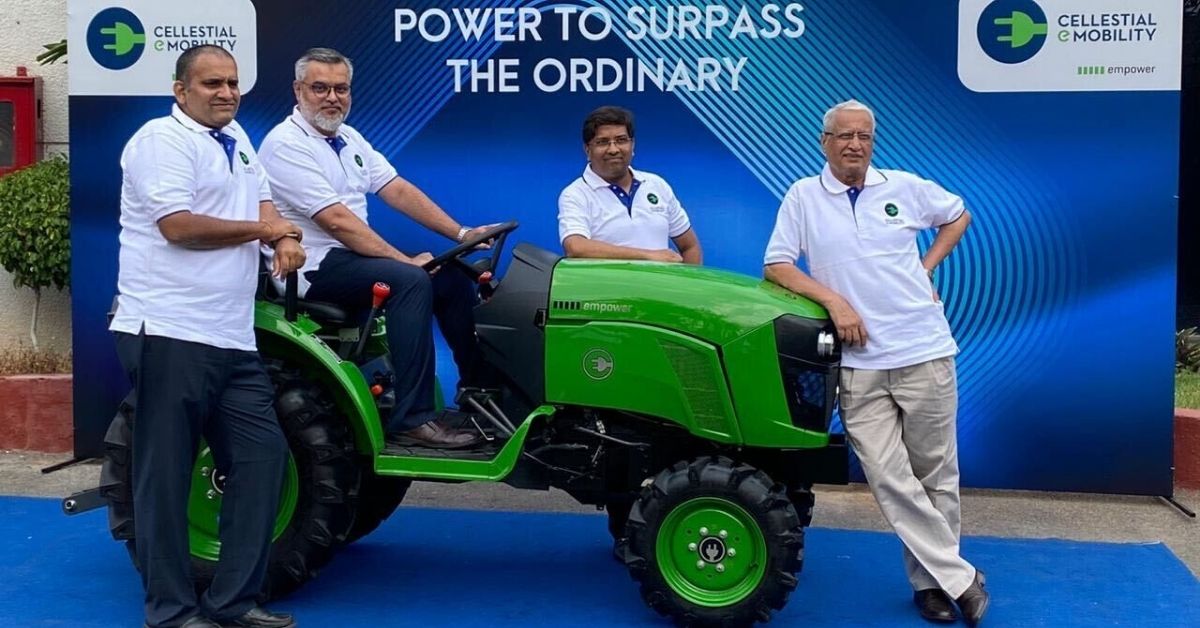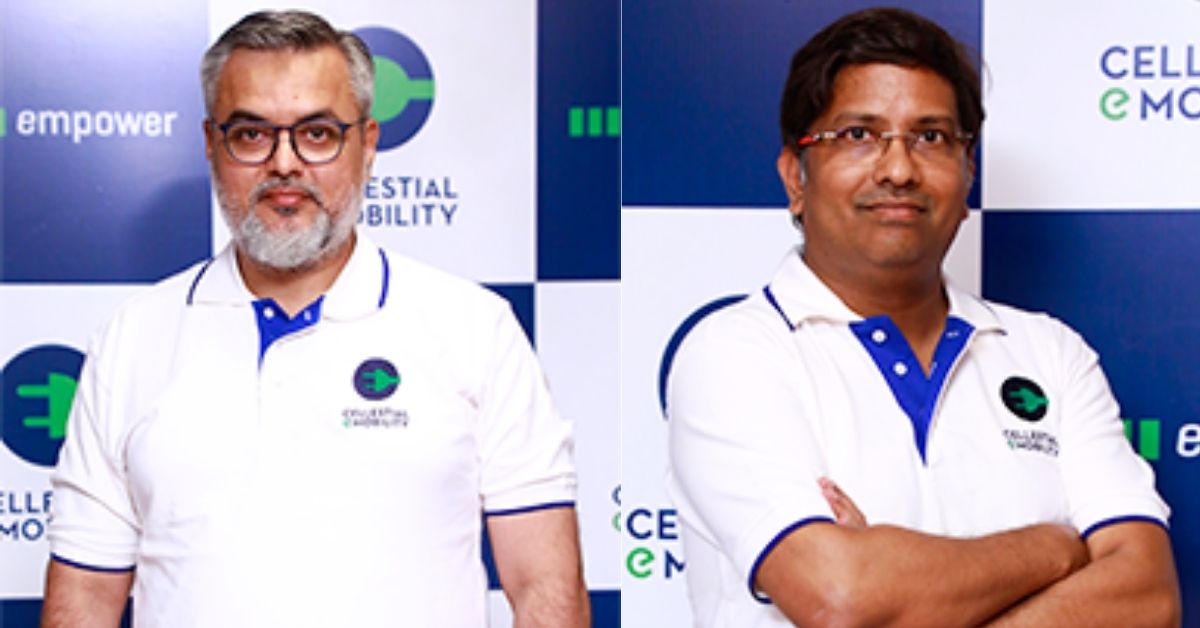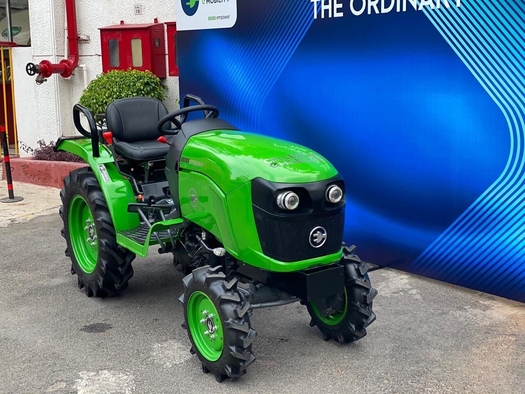New Electric Tractor Cheaper Than Diesel Versions By a Lakh, goes 75 Km/Per Charge
This startup has launched an eco-friendly electric tractor, which is suitable for doing work in agricultural fields.

Cellestial E-Mobility is a Hyderabad-based startup that was founded in May 2019, and is focussed on building innovative solutions that are cost-effective, yet environment friendly. The founders, Syed Mubasheer and Siddhartha Durairajan are two ex-colleagues, who have a combined experience of more than 40 years between them.
In March 2020, they launched an eco-friendly electric tractor, which is suitable for doing work in agricultural fields, horticulture farms, greenhouses, moving goods within factories, and for hauling items from the field to warehouse. Its operating cost is much lesser than that of diesel tractors, and requires low maintenance.

What Was The Inspiration Behind The Vehicle?
“While electric two-wheelers, cars, and rickshaws are being actively developed, we wanted to develop something that would impact the farmers. The agricultural-sector is the backbone of any country. We wanted to engineer something in that sector to lower the cost of farm equipment the farmers have to purchase,” mentions Syed.
According to him, a farmer generates high day-to-day expenses from using a diesel tractor. Apart from that, it has thousands of parts which would incur maintenance costs such as oil replacements and engine repairs.
“The electric tractor has 100-150 parts, and a farmer would incur only electricity charges as an expense. If a farmer uses an electric tractor for 5 years he can save loads of money on diesel charges. Which would be sufficient for him to buy two diesel tractors,” he mentions.
Once they received funding from an angel investor in Singapore, the duo collaborated with other experts who were involved in the tractor segment to understand the requirements of a regular tractor before designing an electric version.
Within 4 months a prototype design was ready for production.
About the Electric Tractor
The tractor has a sturdy body that roughly weighs 600 to 800 kilos. It can haul items as heavy as 1.2 tonnes, and takes 6 to 8 hours to charge on a residential 15 amps unit. It can cover 75kms when the battery is at full-charge, and runs at a maximum speed of 20kms/hour.

“The e-propulsion kit has three components holding the system together: motors, controllers, and battery packs. All of these are developed by us and are tightly integrated. We have created a recipe in such a way that these three elements work in perfect sync, and give an equivalent power as that of a diesel tractor, with a much lower operating cost. The electric tractor is emission-free, noise-free, and compact,” says Siddhartha.
He also mentions two additional advantages — one, the operating cost of a diesel tractor is Rs 100-150 per hour, while it is Rs 20-25 for the tractor. The second is that the tractor can be charged using a residential 15 amp power unit.
“Since most farmers cannot afford to deploy an Electric Vehicle (EV) charging station, or don’t have access to industrial power units, we created a battery that can charge itself on residentials power-outlets. In some areas of the country, farmers are given industrial power units for their farm operations. Using that power, charging the battery would take less than 5 hours,” says Syed adding that the battery will drain based on the intensity of the work being done.
“If a farmer is doing fieldwork that involves top-ploughing or tilling the battery would last for two to three hours. But, if he is just hauling things from his field to warehouse, or is navigating across his field, the juice would last for more than 4 hours,” he says.
The tractor is priced at Rs 5 lakh.
For the future
Real-time testing with farmers on the field could not be done yet because of the nationwide lockdown that was announced. But he claims that the team has done basic tests on soft soil to ensure that the machine manoeuvres with ease.
Siddhartha says, “Over the last few months we have been receiving interest from other businesses who can use the tractor, and we are working with them.”
Cellestial’s team is also working on using their prototype design to develop other heavy vehicles like trucks.
Image courtesy: Cellestial E Mobility
If you found our stories insightful, informative, or even just enjoyable, we invite you to consider making a voluntary payment to support the work we do at The Better India. Your contribution helps us continue producing quality content that educates, inspires, and drives positive change.
Choose one of the payment options below for your contribution-
By paying for the stories you value, you directly contribute to sustaining our efforts focused on making a difference in the world. Together, let’s ensure that impactful stories continue to be told and shared, enriching lives and communities alike.
Thank you for your support. Here are some frequently asked questions you might find helpful to know why you are contributing?


This story made me
-
97
-
121
-
89
-
167













